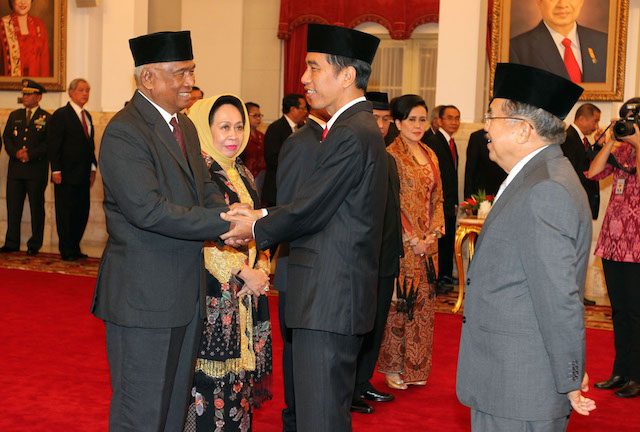SUMMARY
This is AI generated summarization, which may have errors. For context, always refer to the full article.

Will the greatest gifts of reformasi in Indonesia that were born out of the 1998 fall of Suharto — an independent presidency and a Corruption Eradication Commission – be destroyed in 2015? The prospects don’t look good.
To understand the importance of 2015 as a crossroads in Indonesian history, we can compare the collapse of the 1998-2003 reformasi movement with the threatened subversion of President Joko “Jokowi” Widodo’s reform plans today.
History puts the students at the forefront of the reformasi movement. In truth, the movement was quickly captured by conservative forces that remained in control of the parliament, the judiciary, the military, the civil service and most political parties.
Former President BJ Habibie was undermined by his military in East Timor and by pressure to drop corruption charges against Suharto. In October 1999, he was ousted by his own political party, Golkar, the façade democratic party manufactured by Suharto to placate the Americans.
Abdurrahman “Gus Dur” Wahid, a moderate Muslim cleric who replaced Habibie as president in October 1999, faced even wider resistance. The military publicly voiced dissatisfaction with some of his decisions, like his decision to remove former general Wiranto from his cabinet and to promote reformist general Agus Wirahadikusuma. As the economy continued sinking, he was ousted in July 2001 by the same House of Representatives that had elected him less than two years before.
Megawati Sukarnoputri, who followed Gus Dur into office, took a back seat during the halcyon days of reformasi. With her ascendancy, there was no further military reform, no serious effort to negotiate with separatist movements and a clear preference for filling positions with Suharto-era cronies ahead of reformist leaders. She has thus been stamped a non-reformist.
Yet the two mechanisms that give greatest hope to reformers in 2015 were in fact built during the early years of Megawati’s presidency. The first was an amendment to the Constitution enabling the president to be directly elected by the people instead of by the parliament. The second was the establishment of the Corruption Eradication Commission, known by its initials KPK.
These reforms were introduced in the dying gasps of reformasi. By the time famed human rights activist Munir was murdered in September 2004, reformasi had already been dead for a year.
The biggest flaw of reformasi was that key institutions had remained in the hands of Suharto’s cronies. They were the ones with all the money, so they just needed to re-design a system where power required money. During the Suharto era, power required money and military might. But during the new century, power would just require money. The English-speaking world could call it “democracy” or anything else they wanted, as long as power required money.
No institution reflected the new rules more than the nation’s parliament. As one ex-parliamentarian explained, in 1999 a candidate needed $10,000 to $20,000 to campaign for parliament. By 2009, candidates needed at least $330,000 just to be considered a strong contender. The temptation to corrupt among House members was attributed to “the high cost of launching a political career in the House”. Suharto-era cronies had built a system that protected their interests.
The priorities of the House of Representatives are also reflected in their belligerent support for Budi Gunawan, a senior policeman who was signalled as a graft suspect by the KPK long before Megawati’s Indonesian Democratic Party of Struggle (PDI-P) pushed for his nomination to lead the police force. That the PDI-P and other parties could have such complete disregard for public opinion also says something about their priorities.
When the KPK tried to prevent the appointment of Budi Gunawan as Indonesia’s chief of police, Budi’s allies in the police force struck back by filing charges against four KPK leaders. Two of these leaders, Abraham Samad, and Bambang Widjojanto, have been stood down pending the result of the police investigation. Jokowi at the same time withdrew Budi’s nomination and instead nominated Badrodin Haiti, another senior policeman with a similarly shady background.
The two men who have been temporarily appointed to lead the remodelled Corruption Eradication Commission have a history of a cozy relationship with corrupt officials. One was a legal adviser for corrupt officials like former high court judge Akil Mochtar and for Suharto himself, while the other prided himself on not confronting the police force during an earlier stint as KPK leader. The first big test of Jokowi’s ability to fight corruption has been a victory for the corrupt.
This is an excerpt of a piece that appears on Asia Sentinel. Read it in full here.
Warren Doull is a pseudonym for an official who has lived and worked extensively in Indonesia and Timor Leste, including for the United Nations Transitional Administration in East Timor in 2002.
Add a comment
How does this make you feel?
There are no comments yet. Add your comment to start the conversation.